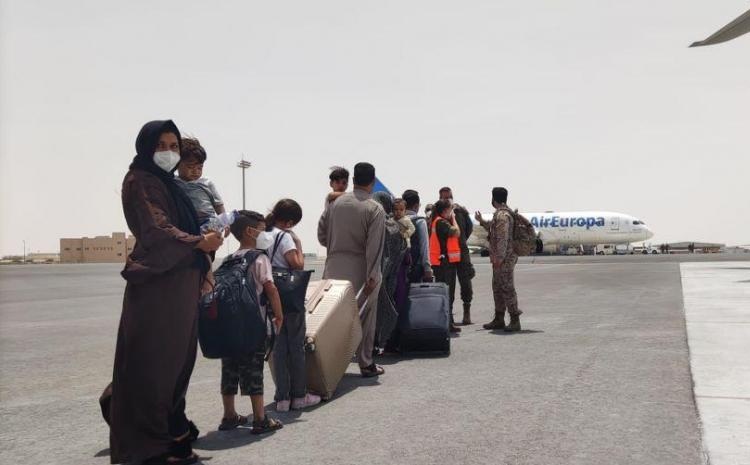The Diplomat
The Popular Parliamentary Group has called on the Government to guarantee a “life with dignity” for Afghans who have taken refuge in Spain since the Taliban came to power in Kabul and to promote, within the EU, the right to education for women and girls in Afghanistan.
In a non-legislative motion presented on October 8 for debate in the Commission on International Cooperation for Development, the PP recalls that more than 270,000 Afghans have fled their homes since January because of the “worsening security conditions” and that this situation has worsened even more with the capture of Kabul by the Taliban on August 15, after U.S. President Joe Biden announced last year the withdrawal of its troops “within six months” and after “20 years on the ground”. This situation, according to the motion, is “especially worrying” for women and children, since “the return of the Taliban to power and their adoption of Sharia law presage the systematic violation of the rights of women and girls.”
“It is impossible to deny that the departure of the Taliban from power in 2001 brought a significant element of progress in education for the country,” since, “from then until 2021, the number of schools in Afghanistan tripled and the number of children in school rose from one million to 9.5 million,” it continues. “Regarding the right to education for women and girls, it is worth recalling that the female literacy rate in Afghanistan almost doubled in a decade, reaching 30% in 2018,” and that “the number of girls in school rose from almost 0% in 2001 to 2.5 million in 2018,” it adds. “Since its arrival on the ground, Spanish Cooperation in Afghanistan has had education as one of its priority lines,” recalls the PP.
“Faced with this situation, and after the initial response, the international community must redouble its diplomatic efforts to seek the greatest guarantees that the Taliban will respect international humanitarian law,” warns the PP. “In addition, the European Union must continue to work to avoid past mistakes and provide a coordinated and effective reception and asylum response,” it adds. In this context, “the Government must lead with facts the defense of human rights in Afghanistan, maintaining the commitment acquired with the people of Afghanistan and, especially, with those who, as women and girls, are more exposed to the abuses of the Taliban”.
Therefore, the Proposition urges the Government to “condition any future cooperation with Afghanistan, whether in the form of economic commitments or development assistance, to the state of the human rights situation in Afghanistan” and to promote, “within the European Union”, the creation of development cooperation programs specifically aimed at encouraging the schooling of women and girls in the new political context of the country and the implementation of “instruments to monitor the situation of education in Afghanistan”, with “special attention” to girls and women.
The motion also asks the Executive to ensure that “all Afghans hosted in Spain have the necessary means to live with dignity, especially avoiding that the departure from Afghanistan truncates their educational development”, and to recognize “the work of Spanish cooperation in Afghanistan, especially highlighting its achievements in education”. Spain has taken in nearly 2,000 Afghans who arrived in the country on 17 flights after the return of the Taliban to power. The evacuees are Afghan nationals (and their families) who collaborated with the Spanish Armed Forces, Embassy and Cooperation over the last twenty years. It is estimated that one third of the Afghans hosted in Spain are under 15 years old and that the total average age is 22.







